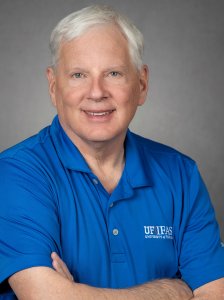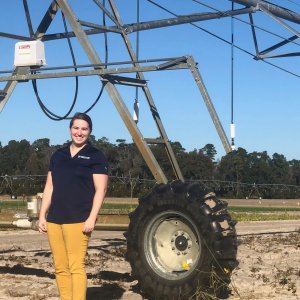July 2022 FloridAgriculture eNewsletter
 By J. Scott Angle
By J. Scott Angle
@IFAS_VP
There’s a huge difference between how people think agriculture works and what actually happens on your farm. You can do something about it in 20 minutes.
Dr. Christa Court’s survey of corn, cotton and peanut farmers’ best management practices is your chance to speak—confidentially and candidly—to researchers who provide this information to policy makers.
The survey (which you can express your interest in participating in here: https://go.ufl.edu/bmp2022) could tell those policy makers if there are practices they’re pushing that just won’t work on your farm. It could also let them know what information or incentives you need to make them work.
Your responses can deliver a dose of reality to the people who make laws, write regulations and design cost-share programs. They don’t know what’s happening on your farm unless you tell them.
Another example of where you can have input is a survey conducted by Dr. Zhifeng Gao and his students. They are asking you about high tunnels, as in why aren’t more vegetable growers using them when the USDA’s Natural Resources Conservation Service offers instruction on how to install and maintain them, and even offers cash incentives to keep cost down. The results will help Extension agents help you figure out how to take advantage of this opportunity, and they could even inform NRCS tweaks that could make the program easier for you to tap into.
It’s not just academics who see value in surveys. Charles Shinn guards both your privacy and your time as your FFBF director of government and community affairs. He rightfully and respectfully asked Court for a justification of the time and candor she’s asking of you.
They’ve had productive discussions that have helped Court improve the survey. Shinn now believes the information Court gleans will ultimately help farmers adjust to new BMP reporting requirements.
Surveys from Court, Gao and their UF/IFAS Department of Food and Resource Economics colleagues can strengthen your voice in Tallahassee and beyond. The results arm your FFBF lobbyist Courtney Larkin with valuable information on how to improve proposed legislation—or to fix harmful existing legislation.
By yourself, it is hard to have your voice heard. As part of survey, you contribute to a statewide chorus that articulates the widespread impact of existing and proposed policy.
I understand survey fatigue, and I don’t want my faculty double teaming you with the same questions in separate surveys. I will explore ways to better coordinate who’s asking what. In the meantime, my faculty work hard to make sure they can’t find the data other places before asking.
I also know time is money, so I’m glad to see that in this case Court will give you a little money for your time. But I hope the payoff for you is far greater than that as we amplify your voice.
I know you want that voice, or you wouldn’t be reading the e-newsletter of the group that calls itself “The Voice of Florida Agriculture.”
The fact is, in the case of BMPs, for example, we don’t have good information on what you’re doing right now. That’s why Court is asking. And the more quality responses she gets, the better input she can provide to policy makers so they can avoid decisions based on faulty or incomplete information.
So much of what UF/IFAS does is based on farmer feedback. Your input shapes how we serve you. With a higher survey response rate, it could shape how policy makers serve you as well.
J. Scott Angle is the University of Florida’s Senior Vice President for Agriculture and Natural Resources and leader of the UF Institute of Food and Agricultural Sciences (UF/IFAS).
